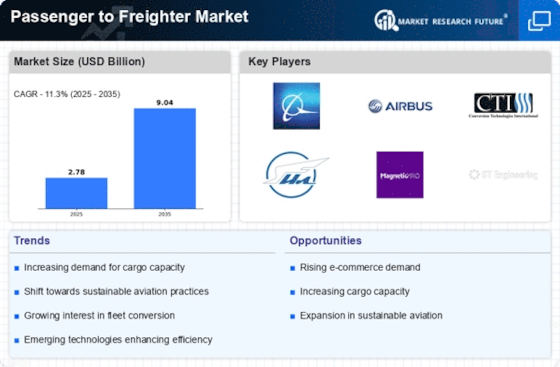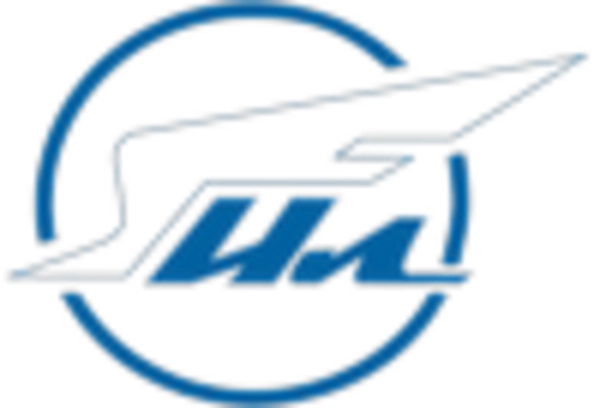Market Trends
Key Emerging Trends in the Passenger to Freighter Market
In order to gain a competitive advantage in the rapidly changing dynamics of cargo transportation, industry players employ various strategies aimed at positioning themselves in the marketplace, thereby shaping the competitive landscape of the Passenger-to-Freighter (P2F) market. Offering diverse conversion solutions targeting different segments is one such strategy. Partnerships or strategic alliances play a role in shaping how companies position their share of the market in terms of collaboration among participants. Forming such alliances with airlines, leasing companies, and MRO providers helps companies gain from combined expertise, resources, and network effects. Providing greater geographical reach and targeting emerging markets while establishing themselves across different regions are some ways that these players are able to position themselves strategically. This allows them to take advantage of an increasing worldwide need for cargo transportation services, which goes hand-in-hand with the globalization of trade and e-commerce initiatives. Technological innovation and differentiation are the two main strategic pillars that P2F conversion providers use when positioning in the market. A competitive advantage is gained by firms investing in research and development to integrate cutting-edge technologies into their conversion processes. A global perspective is vital for any organization that wants to position its market share effectively within the Passenger Freighter arena. The industry players usually extend their borders, focus on new emerging markets, and establish a stronger presence in multiple continents as critical ways of entering these markets so as to reach a larger target audience outside their borders. In doing this, conversion service providers join the bandwagon of increasing demand for cargo transportation services worldwide, which aligns with the globalization of trade and e-commerce initiatives of many businesses. Also, sustainability initiatives influence where a company positions its market share when it comes to P2F. These companies prioritize green aviation by employing environmentally friendly conversion processes, hence attracting carriers who value environmental friendliness. Companies that employ energy-efficient technologies use lightweight materials and practice eco-friendly activities, not only positively impacting the environment but also placing themselves as responsible, forward-thinking participants within such a market, thereby leading them to expand their shares in it. Another important strategy used for gaining more customers' loyalty or enhancing an organization's competitiveness is having flexible conversion solutions since customer needs continue diversifying depending on cargo type. By being adaptable, having customizable configurations, or being able to handle different cargo types, these corporations can be recognized as being versatile and responsive to current airfreight demands.


















Leave a Comment